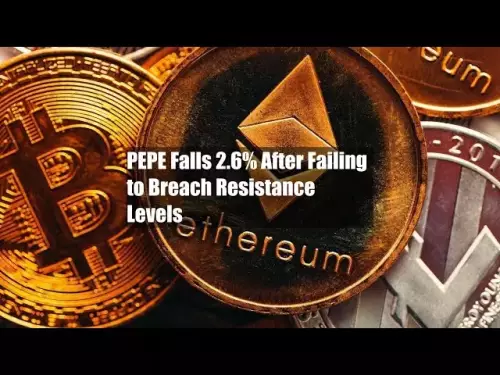-
 bitcoin
bitcoin $123963.239194 USD
1.37% -
 ethereum
ethereum $4529.082464 USD
1.07% -
 xrp
xrp $2.983640 USD
0.71% -
 tether
tether $1.000287 USD
0.02% -
 bnb
bnb $1179.874393 USD
2.99% -
 solana
solana $230.633678 USD
1.55% -
 usd-coin
usd-coin $0.999835 USD
0.03% -
 dogecoin
dogecoin $0.254240 USD
1.34% -
 tron
tron $0.341176 USD
0.15% -
 cardano
cardano $0.842285 USD
0.52% -
 hyperliquid
hyperliquid $48.537896 USD
-0.86% -
 chainlink
chainlink $21.863092 USD
-0.84% -
 ethena-usde
ethena-usde $0.999743 USD
-0.07% -
 sui
sui $3.579561 USD
-0.18% -
 stellar
stellar $0.403418 USD
2.67%
Ethereum investment manual: What to do when gas fees rise?
When Ethereum gas fees rise, monitor prices with Etherscan, adjust gas settings, use gas tokens like CHI, and consider alternative networks like Binance Smart Chain.
May 26, 2025 at 09:00 am
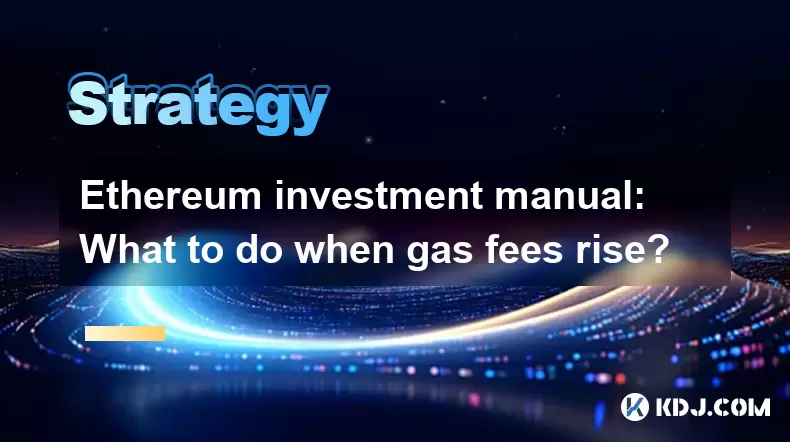
Ethereum has become a cornerstone of the cryptocurrency ecosystem, renowned for its smart contract functionality and vast array of decentralized applications (dApps). However, one of the persistent challenges that investors face on the Ethereum network is the fluctuation and often high cost of gas fees. Gas fees are the transaction costs that users pay to execute transactions and run smart contracts on the Ethereum blockchain. When these fees rise, it can significantly impact the cost-effectiveness and efficiency of investing in Ethereum-based assets. This manual will guide you through understanding gas fees, strategies to manage them, and practical steps to take when they rise.
Understanding Ethereum Gas Fees
Gas fees on the Ethereum network are payments made in Ether (ETH) to compensate for the computational energy required to process and validate transactions. The fees are determined by two primary factors: gas price and gas limit. Gas price is the amount of Ether you're willing to pay per unit of gas, while gas limit is the maximum amount of gas you're willing to use for your transaction. When the network is congested, gas prices tend to rise due to increased demand for transaction processing.
Why Gas Fees Fluctuate
Gas fees can fluctuate due to various reasons, including:
- Network Congestion: High demand for transaction processing can lead to increased gas prices as users bid against each other to have their transactions processed faster.
- Smart Contract Complexity: More complex smart contracts require more gas to execute, which can drive up fees.
- Market Conditions: During periods of high market activity, such as significant price movements or major events, the demand for transactions increases, leading to higher gas fees.
Strategies to Manage Gas Fees
Managing gas fees effectively can help you optimize your Ethereum investments. Here are some strategies to consider:
- Timing Your Transactions: Monitor the Ethereum network's congestion levels and aim to execute your transactions during periods of lower activity. Tools like Etherscan and Eth Gas Station can provide real-time data on gas prices and network congestion.
- Using Layer 2 Solutions: Layer 2 scaling solutions, such as Optimism and Arbitrum, can help reduce gas fees by processing transactions off the main Ethereum chain and then settling them in batches.
- Batching Transactions: If you need to perform multiple transactions, consider batching them into a single transaction. This can help reduce the overall gas cost compared to executing each transaction separately.
What to Do When Gas Fees Rise
When gas fees rise, it's important to take specific actions to minimize their impact on your investments. Here are detailed steps to follow:
Monitor Gas Prices: Use tools like Etherscan or Eth Gas Station to keep an eye on current gas prices. These platforms provide real-time data and can help you decide the best time to execute your transactions.
- Visit Etherscan or Eth Gas Station.
- Check the current gas prices and network congestion levels.
- Plan your transactions around periods of lower gas fees.
Adjust Gas Prices: If you need to execute a transaction urgently, you may need to adjust the gas price to ensure it gets processed promptly. However, be cautious as higher gas prices can significantly increase your costs.
- Open your Ethereum wallet or the platform you're using for transactions.
- Navigate to the transaction settings.
- Adjust the gas price to a level that balances speed and cost.
Utilize Gas Tokens: Gas tokens like CHI allow you to pre-purchase gas at a lower price and use it later when fees are higher. This can be an effective way to hedge against rising gas fees.
- Acquire CHI tokens from a compatible exchange or platform.
- Use the CHI tokens to pre-purchase gas at a lower rate.
- When gas fees rise, use your pre-purchased gas to execute transactions at a lower cost.
Consider Alternative Networks: If gas fees on Ethereum become prohibitively high, consider using alternative networks like Binance Smart Chain or Polygon, which often have lower transaction fees.
- Research and select an alternative network that suits your investment needs.
- Transfer your assets to the chosen network.
- Execute your transactions on the alternative network to take advantage of lower fees.
Practical Tips for Ethereum Investors
As an Ethereum investor, here are some practical tips to help you navigate the challenges posed by rising gas fees:
- Stay Informed: Keep up-to-date with Ethereum network developments and updates. The Ethereum community is continuously working on solutions to improve scalability and reduce gas fees.
- Use Efficient Wallets: Some wallets, like MetaMask, offer features that help you optimize gas fees, such as suggesting the optimal gas price for your transactions.
- Plan Ahead: If you anticipate a period of high network activity, such as a major token launch or a significant market event, plan your transactions in advance to avoid peak times.
Leveraging DeFi Platforms
Decentralized Finance (DeFi) platforms are a popular use case for Ethereum, but they can also be affected by high gas fees. Here are some tips for managing gas fees when using DeFi platforms:
- Choose Gas-Efficient Protocols: Some DeFi protocols are more gas-efficient than others. Research and select platforms that are known for lower gas consumption.
- Use DeFi Aggregators: Platforms like 1inch and Matcha aggregate liquidity from various DeFi protocols and can help you find the best rates and lower gas fees for your transactions.
- Consider Yield Farming on Alternative Networks: If gas fees on Ethereum are too high, consider yield farming on alternative networks like Binance Smart Chain or Polygon, which can offer similar opportunities with lower fees.
Frequently Asked Questions
Q: Can I predict when gas fees will rise?A: While it's challenging to predict exact gas fee increases, you can monitor network activity and market conditions to anticipate periods of high demand. Tools like Etherscan and Eth Gas Station can help you stay informed about current and projected gas prices.
Q: Are there any long-term solutions to high gas fees on Ethereum?A: The Ethereum community is actively working on solutions to improve scalability and reduce gas fees. Ethereum 2.0 and Layer 2 scaling solutions are among the initiatives aimed at addressing these challenges.
Q: How can I reduce gas fees when interacting with smart contracts?A: To reduce gas fees when interacting with smart contracts, consider using gas-efficient protocols, batching transactions, and timing your interactions during periods of lower network congestion. Additionally, using gas tokens like CHI can help you pre-purchase gas at a lower rate.
Q: Is it worth switching to alternative networks to avoid high gas fees?A: Switching to alternative networks can be a viable strategy to avoid high gas fees, especially for frequent transactions. However, consider the trade-offs, such as the security and decentralization of the alternative network, before making a decision.
Disclaimer:info@kdj.com
The information provided is not trading advice. kdj.com does not assume any responsibility for any investments made based on the information provided in this article. Cryptocurrencies are highly volatile and it is highly recommended that you invest with caution after thorough research!
If you believe that the content used on this website infringes your copyright, please contact us immediately (info@kdj.com) and we will delete it promptly.
- BlockDAG, DOGE, HYPE Sponsorship: Crypto Trends Shaping 2025
- 2025-10-01 00:25:13
- Deutsche Börse and Circle: A StableCoin Adoption Powerhouse in Europe
- 2025-10-01 00:25:13
- BlockDAG's Presale Buzz: Is It the Crypto to Watch in October 2025?
- 2025-10-01 00:30:13
- Bitcoin, Crypto, and IQ: When Genius Meets Digital Gold?
- 2025-10-01 00:30:13
- Stablecoins, American Innovation, and Wallet Tokens: The Next Frontier
- 2025-10-01 00:35:12
- NBU, Coins, and Crypto in Ukraine: A New Yorker's Take
- 2025-10-01 00:45:14
Related knowledge
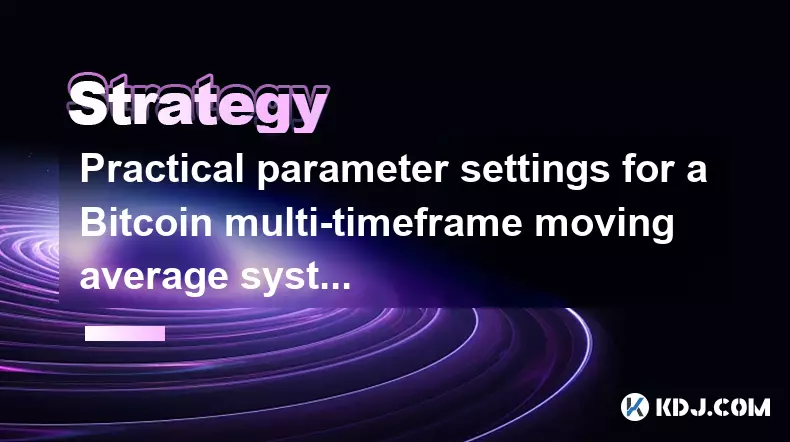
Practical parameter settings for a Bitcoin multi-timeframe moving average system
Sep 18,2025 at 10:54pm
Optimizing Timeframe Combinations for Bitcoin Trading1. Selecting appropriate timeframes is crucial when building a multi-timeframe moving average sys...
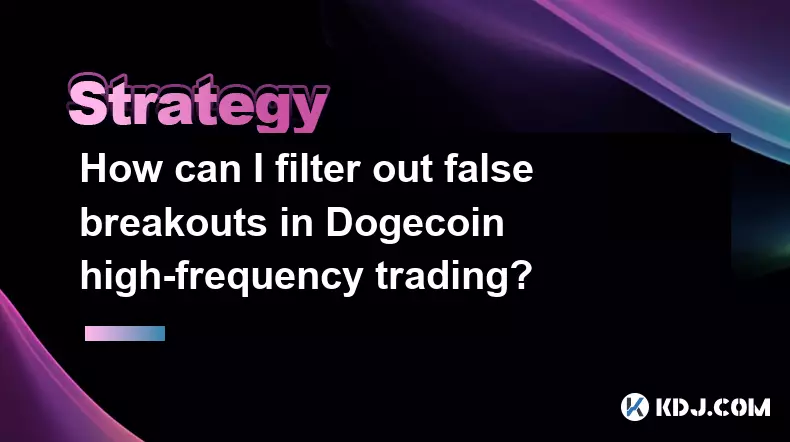
How can I filter out false breakouts in Dogecoin high-frequency trading?
Sep 22,2025 at 01:00am
Understanding False Breakouts in Dogecoin Trading1. A false breakout occurs when Dogecoin's price appears to move beyond a defined support or resistan...

Techniques for identifying tops and bottoms in the Bitcoin on-chain NVT model
Sep 20,2025 at 07:54pm
Understanding the NVT Model in Bitcoin Analysis1. The Network Value to Transactions (NVT) ratio is often described as the 'P/E ratio' of the cryptocur...

What does the surge in open interest in Bitcoincoin futures mean?
Sep 20,2025 at 11:18pm
Understanding the Surge in Dogecoin Futures Open Interest1. A surge in open interest within Dogecoin futures indicates a growing number of active cont...
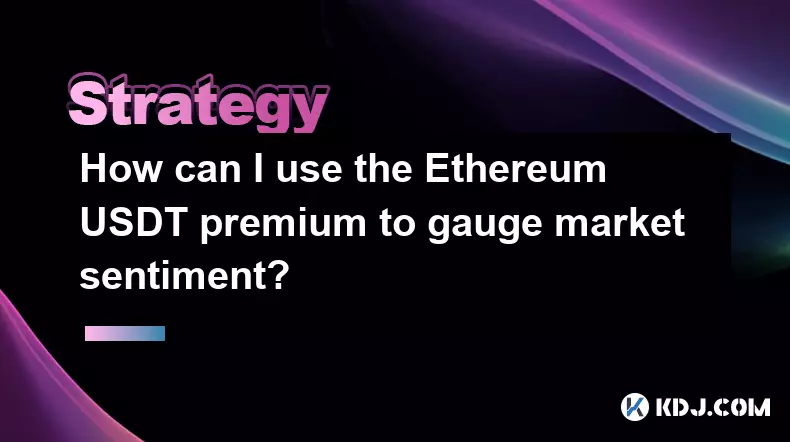
How can I use the Ethereum USDT premium to gauge market sentiment?
Sep 18,2025 at 11:55pm
Understanding the Ethereum USDT Premium1. The Ethereum USDT premium refers to the price difference between USDT (Tether) traded on Ethereum-based plat...
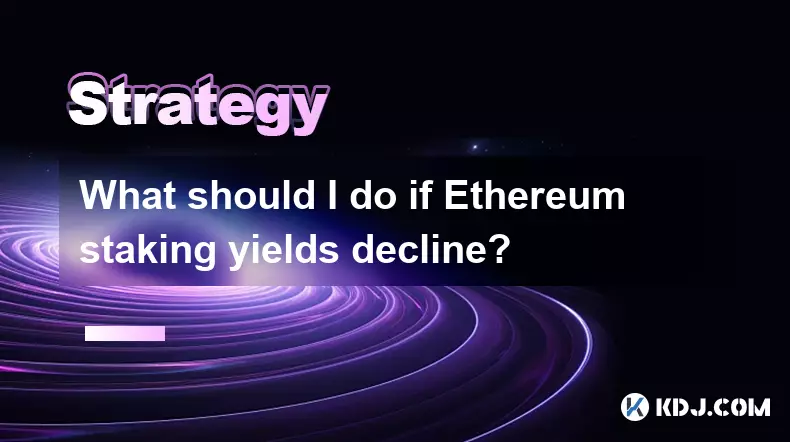
What should I do if Ethereum staking yields decline?
Sep 20,2025 at 06:18am
Understanding the Causes Behind Declining Ethereum Staking Yields1. The Ethereum network transitioned to a proof-of-stake consensus mechanism with the...

Practical parameter settings for a Bitcoin multi-timeframe moving average system
Sep 18,2025 at 10:54pm
Optimizing Timeframe Combinations for Bitcoin Trading1. Selecting appropriate timeframes is crucial when building a multi-timeframe moving average sys...

How can I filter out false breakouts in Dogecoin high-frequency trading?
Sep 22,2025 at 01:00am
Understanding False Breakouts in Dogecoin Trading1. A false breakout occurs when Dogecoin's price appears to move beyond a defined support or resistan...

Techniques for identifying tops and bottoms in the Bitcoin on-chain NVT model
Sep 20,2025 at 07:54pm
Understanding the NVT Model in Bitcoin Analysis1. The Network Value to Transactions (NVT) ratio is often described as the 'P/E ratio' of the cryptocur...

What does the surge in open interest in Bitcoincoin futures mean?
Sep 20,2025 at 11:18pm
Understanding the Surge in Dogecoin Futures Open Interest1. A surge in open interest within Dogecoin futures indicates a growing number of active cont...

How can I use the Ethereum USDT premium to gauge market sentiment?
Sep 18,2025 at 11:55pm
Understanding the Ethereum USDT Premium1. The Ethereum USDT premium refers to the price difference between USDT (Tether) traded on Ethereum-based plat...

What should I do if Ethereum staking yields decline?
Sep 20,2025 at 06:18am
Understanding the Causes Behind Declining Ethereum Staking Yields1. The Ethereum network transitioned to a proof-of-stake consensus mechanism with the...
See all articles

























